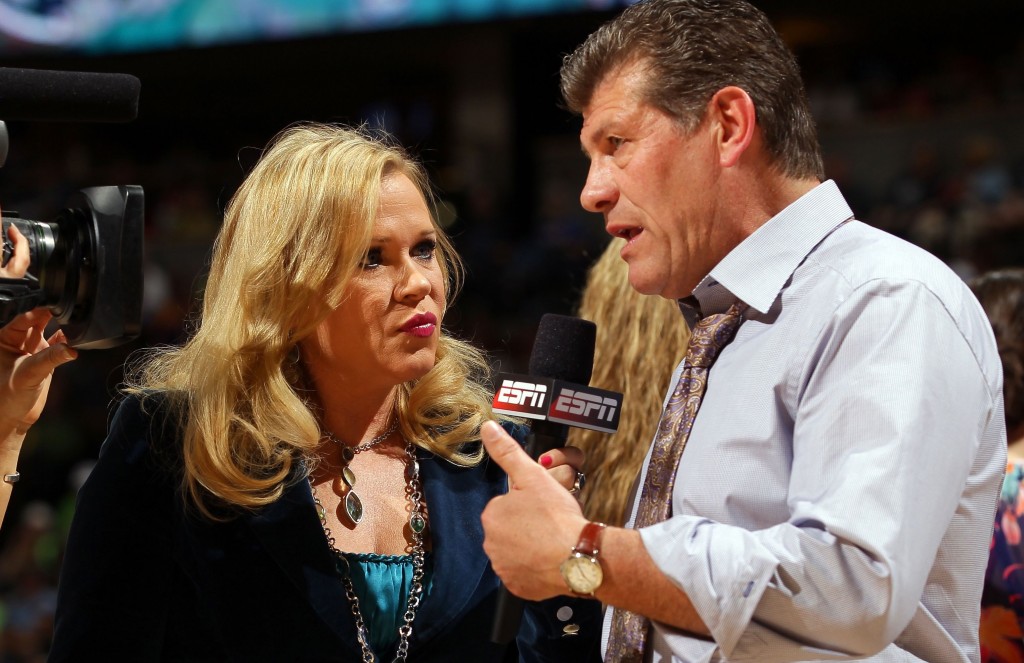Interview tips via Poynter from ESPN’s guru, John Sawatsky

Holly Rowe, whom John Sawatsky calls a particularly good sideline reporter because of her on-the-fly interviewing technique, talks to UConn coach Geno Auriemma at the women's Final Four.
Writing for the Poynter Review Project, ESPN’s ombudsman partnership with the Poynter Institute, Jason Fry profiles John Sawatsky, a former investigative reporter who since 2004 has been the Worldwide Leader’s interviewing guru.
Sawatsky, Fry writes, coaches all ESPN reporters, producers, editors and on-air talent to get the most out of interviews by focusing on what he calls both the micro and macro levels:
On the micro level, Sawatsky preaches that questions should be open, neutral and lean. Open questions typically ask what, how or why, and yield more than closed questions, which invite yes or no answers. Neutral questions are free of values added by the reporter; Sawatsky sees such values, whether positive or negative, as distracting baggage. And questions should be lean: brief in length, and conceptually simple. (For more about Sawatsky and his techniques, see profiles here and here.)
The “macro” level, which Sawatsky says he has not been as successful teaching as the micro stuff, is “how to structure interviews as more than just a series of individual questions”:
To address that, he has begun teaching a new workshop at ESPN, one he calls “story magic.” In it, he examines what structural elements make stories work, using commercials as a teaching tool. Commercials, he says, can tell wonderful stories while having to ruthlessly economize on time. Why, for instance, was Mean Joe Greene’s Coke ad magical, while Joe Namath’s famous pantyhose ad wasn’t?
Internalizing that “open, neutral and lean” mantra will go a long way toward improving almost anyone’s interviewing technique. Keep questions short, to the point, open-ended—”yes” or “no” should not be a possible response—and free of your own point of view, which can color your subject’s answer.
A good interview might feel like a conversation, but as Sawatsky points out, it’s not. The goal of a conversation is to exchange information. The goal of an interview is to get information.
And if the biggest problem you have as an interviewer is fear of the interview itself because you’re shy, here are 5 ways journalists can overcome shyness during interviews by Poynter’s Beth Winegarner, who writes that she was painfully shy as a kid and had to overcome that when she became a reporter.

